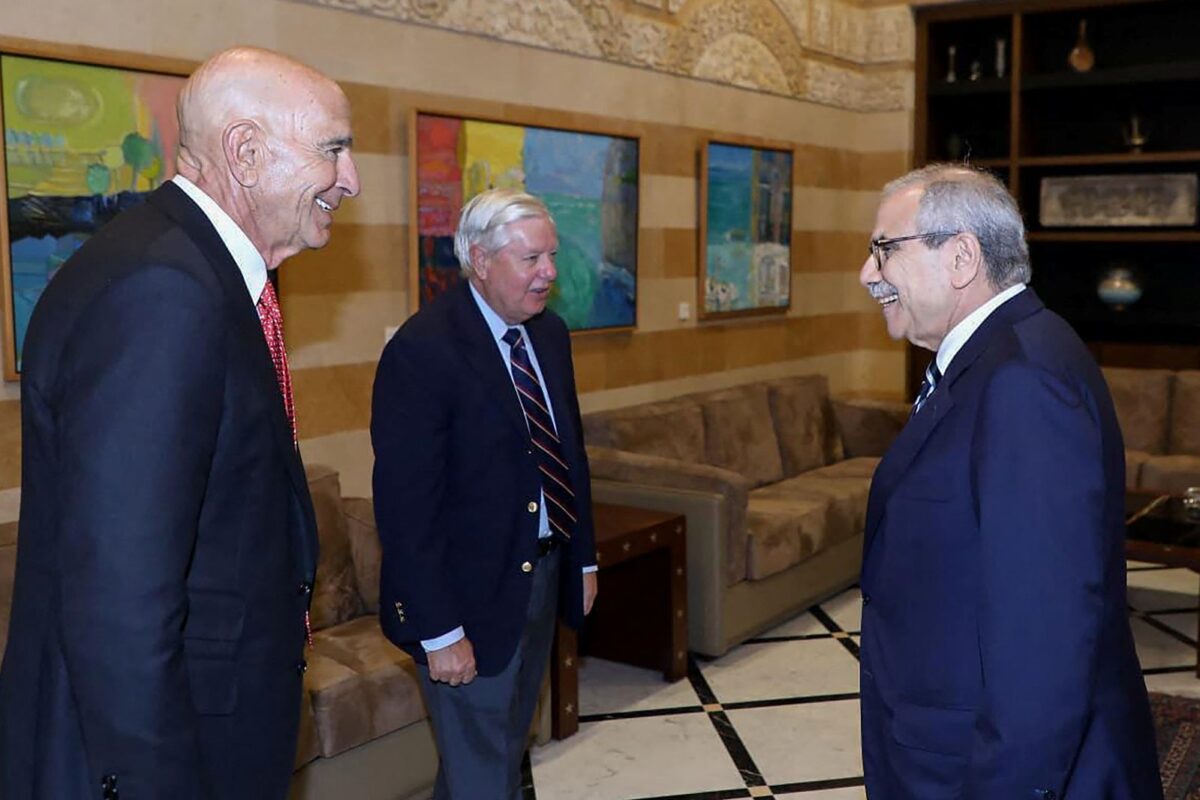
In the space of two days, both Israel and Syria spoke directly about Lebanon. Their words differed, their intentions diverged, but they revealed a reality we cannot ignore: for the first time in years, Lebanon’s diplomacy is extracting recognition even from those who long treated us as little more than a battlefield.
Israel: Forced Recognition
Benjamin Netanyahu’s statement was audacious. He praised Lebanon’s decision to disarm non-state actors, promised gradual withdrawal from five occupied points, and spoke directly to President Joseph Aoun and Prime Minister Nawaf Salam. On its surface, it looked like Israel claiming ownership of Lebanon’s choices. In truth, it was something else: a forced acknowledgment of Lebanese sovereignty.
Netanyahu was pushed by Washington to say what no Israeli leader wanted to say: that Israel would withdraw from Lebanese land if Hezbollah is disarmed, and that Lebanon’s government is the sole negotiating counterpart. For decades, Hezbollah justified its existence by claiming it alone could defend Lebanon. Today, diplomacy has delivered what militias could not: recognition of our borders, acknowledgment of our sovereignty, and a framework for Israel’s withdrawal.
Of course, Netanyahu rubbed it in, trying to humiliate Hezbollah and provoke a reaction. And Hezbollah will return to its tired script, accusing the state of acting as an Israeli mouthpiece. But we, as Lebanese, should see through both games. The fact remains: Israel was compelled to recognize the state, not the militia. That is not Netanyahu’s victory. It is ours.
Syria: Whose Voice, Whose Message?
Ahmed al-Sharaa’s words the day before carried a different weight. He spoke of “letting go of wounds caused by Hezbollah” and invited Lebanon to benefit from Syria’s resurgence. But here, nuance matters. He said Hezbollah, not the Shia. That choice could be an internal message to Hezbollah, or an external one to Israel. And we cannot ignore the Turkish shadow. Many analysts read Sharaa’s remarks as Ankara’s message in a Syrian tongue: you flirt with the Kurds on our borders, we will flirt with Hezbollah on yours.
Is this Syria planting a foot back in Lebanon under Turkish cover? Or is it transactional, pushing for border stability and economic linkages to make Lebanon dependent on Damascus? Either way, it raises a question: if Lebanon is to “benefit from Syria’s resurgence,” does that mean partnerships and trade, or new leverage over us, this time tied to Turkey rather than Tehran or Riyadh?
The International Layer
The story doesn’t stop with Israel and Syria. Donald Trump is reportedly pushing for a special financial zone in South Lebanon, designed to stimulate the economy, create jobs, and act as a security buffer that prevents Hezbollah from rebuilding on the border. That plan shows the scale of international investment in putting an end to this cycle for good. Lebanon is no longer just a local chessboard. It is part of a regional reset that global powers are shaping.
Lebanon’s Challenge
All this makes one thing clear: Lebanon may have come late to the party, but it is finally being recognized as a state actor again. Diplomacy, not militias, is forcing acknowledgment of our sovereignty. But the work is far from over. Disarmament remains the hardest challenge, and until it is complete, neighbors will hesitate, hedge, and use language designed as much to signal to one another as to us.
The situation is still in labor. Nothing has been settled. But the direction is undeniable: the region is moving toward peace. And in that shift, one rule applies — if you are not on the guest list, you are on the menu.
Ramzi Abou Ismail is a Political Psychologist and Senior Research Fellow at the Institute for Social Justice and Conflict Resolution at the Lebanese American University.
The views in this story reflect those of the author alone and do not necessarily reflect the beliefs of NOW








